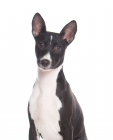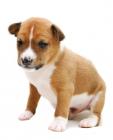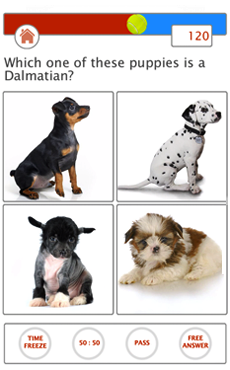Basenji
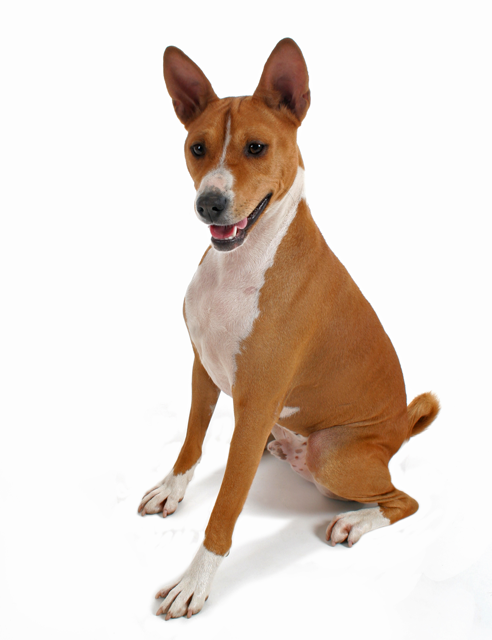
In my own words
Basenji ‘I’m a howler of a hound with a lot of love to give.’
HOWL HOWL HOWL… excuse my peculiar sounds. Some humans find it funny and most find it a lot better than barking. YODELYODEL YODEL… there I go again. These sounds I make depend on my mood. My master tends to laugh when I’m on one of my howls. He likes the faces I make too. He says I’m easy to read. When I sense danger I furrow my brow and when I get worried I raise my eyebrow.
I love to hunt. It’s in my bones. My hunting genes go back thousands of years. My ancestors can be traced back to the ancient Egyptians. I was also used in Africa to scare of dangerous animals and lead natives back home. I’ve never really been able to shake that instinct so it has a tendency to take over. My master makes sure I’m careful around cars as I enjoy chasing a good car every once in a while. We don’t go hunting a whole lot so when I’m in the garden with the kids I get a little rambunctious. Sometimes they get a little lazy and I snooze for a second but the minute I’m awake I turn into ball of energy. No rest for the Basenji!
My ideal owner(s)
Families with older children
Hunters
Sportsmen
Experienced dog handlers
What they say about me
Inquisitive
Active
Loyal
Reserved
Athletic
Please read on, to find out more about me, and whether I will be someone you can be happy with for the next 12 years, or even longer!
Is this Basenji for you?
Test your knowledge about the Basenji
Information essential about the Basenji
Kennel Club Group:
Southern Hound –
Category:
Small
Size:
Height: Male Dogs 16-17 inches (41-43 cm.) Female Dog 15-16 inches (38-41 cm.) Weight: Male Dogs 22-26 pounds (10-12 kg.) Bitches 20-25 pounds (9-11 kg.)
Popularity:
This is a diverse breed that though incredibly intelligent and independent loves human companionship making it a popular family pet. In addition, the Basenji is a popular hunting dog.
Breed History:
The Basenji is an ancient breed: the first traces of a dog like it were discovered in Egyptian tombs and wall drawings. The breed was used in central Africa for thousands of years. Basenjis were valued by African hunters for their quickness, intelligence and silence. They were used for a host of duties, such as, guides in the forest, retrieving, pointing, tracking and herding. The first Basenjis taken to Europe in the 19th century did not survive. However, in 1937 these unique dogs were introduced in England and America, drawing huge crowds and causing a sensation.
English breeders refined it and exported it all over the world. The first litter of Basenji puppies were born and raised to maturity in the USA in 1941. The breed gained recognition from the American Kennel Club in 1944.
Character:
Basenjis may have an illustrious hunting pedigree, but they can get very comfortable at home. In fact, Basenjis will sometimes sleep the day away. When they wake up, however, watch out: These dogs love to play, explore and run. Even if you’re not in the mood to play, your Basenji will find a way to coax you out of your chair. Their intelligence and craftiness is second to none. Basenji is a sight hound, hunting by sight only. They have very strong hunting instincts that persuade them to chase after anything; they love to chase after cars. The Basenji can be somewhat aloof around strangers making him a very suspicious breed. He is very alert, rambunctious and playful making him a lovely family pet, however as mentioned, this breed does love the outdoors and does best with acreage.
Basenjis don’t bark—a plus for some dog owners—but keep in mind that they do make some very interesting sounds. Depending on their mood, they will howl, scream or yodel. Basenjis also make human-like facial expressions—furrowing their brows when they sense danger or raising their eyebrows when they get worried.
Temperament:
Taking into account that their ancestors practically lived in the bush hunting and tracking, Basenjis are a mix of cleverness, resourcefulness and independence. They know how to take care of themselves, but they also love human companionship and togetherness. Basenjis form very strong bonds with their masters. So don’t be fooled by their lone-wolf nature: Basenjis are people-oriented dogs. If neglected or excluded from family occasions, they can get depressed. Sometimes this can lead to destructiveness. If left alone in the back yard for hours on end, a Basenji can easily dig up a garden or figure out a way to jump the fence.
The Basenji is a very alert and fun loving breed, however is not recommended for an inexperienced owner. Whilst Basenjis can be very patient and good with children, it is important that they are socialized early to prevent the tendencies to fight with other dogs.
Conformation:
Basenjis are smooth, muscular, athletic dogs on the small side. The head is wrinkled around the forehead and the muzzle is shorter than the skull. Their alert heads have tapered muzzles, almond-shaped eyes, dark noses, and wrinkled foreheads that sometimes give them a worried look. The ears are straight, small, erect and open in the front. The dog's back is level and the legs are straight.
They have long necks that slope down to short backs. Their tails curl over, and they walk with a kind of horse-like trot. Overall, Basenjis carry themselves with gracefulness and readiness. As mentioned the Basenji does not bark, but rather makes a yodel noise. They also howl, growl and crow, depending on the dog's mood.
Colour:
The coat is short, shiny and fine and comes in pure black, copper, red, chestnut red, or tricolour in combinations of black, tan and white, or black, brindle and white. The American Kennel Club standard calls for the dog to have white on the feet, chest and tip of the tail. White legs, blaze and collar are optional.
Training:
The Basenji is very intelligent, responds well to training with a strong desire to please. THEY should be socialized early to prevent any destruction problems if he is to be home raised, and to ensure that he will do well around children and other animals. Obedience training is a must for this energetic and very alert breed. This breed should have a variety of training methods to keep his attention, as he tends to bore quickly. Variety, consistency, and firm handling work best with the Basenji.
Care:
The Basenji is much like a cat in cleanliness and grooms himself on occasion. This is a little to no shedding breed, however does require some grooming if the coat is to stay in good shape. An occasional brushing with a firm bristle or wire brush works best to remove dead or loose hair from the coat. The smooth coat of the Basenji is very easy to care for.
The Basenji tends to clean himself making the coat very easy to care for and relatively clean. This breed has little to no doggy smell. This is a good dog for people with allergies.
Health:
Common health issues that can occur in the Basenji include Fanconi Syndrome (a kidney ailment, which must be treated the moment the symptoms are noticed), in addition to hip, eye and intestinal problems. Basenjis are clean animals. Less common health concerns that may possibly occur include persistent pupillary syndrome (PPS), Hypothyroidism and umbilical hernia.
Basenjis need lots of exercise to stay mentally and physically fit. They have a tendency to become fat and lazy unless the owner is consistent about it. Several walks a day will suit them and they make superb jogging partners. But always remember to keep them on a leash. The Basenji will do okay in an apartment if it gets enough exercise. They are very active indoors and a small yard will do. However, yards must be fenced. The fence should be planted deeply into the ground and high to prevent escape as this breed can be an escape artist if proper precautions are not ensured. The Basenji is happiest when it is kept with two or three other Basenjis; they will not fight among themselves.
A healthy Basenji can live as 12 years, producing an average litter size of 4-6 puppies. A female Basenji comes into heat once a year, where as most other breeds are twice a year.
You may also like:
If you like Basenjis, you may be interested in breeds of the same size »
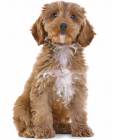
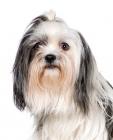

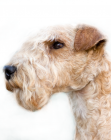

If you like Basenjis, you may like other breeds with similar characteristics »
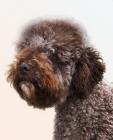
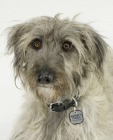
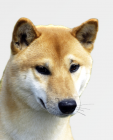

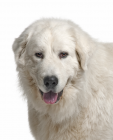
If you like Basenjis, you may be interested in these other hound dogs »
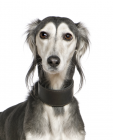

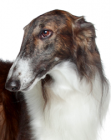
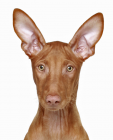
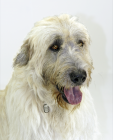
Advice on choosing your breed »
Find an animal shelter or rescue home where a Basenji is waiting for a new home »
The following grid gives a fast track review, which covers all breeds. You can apply it to help you decide if a Basenji is suitable for you, the environment where you live, your personality and your lifestyle. On the grid, 1= strongly disagree, and 5= strongly agree. For example, if you are looking for a dog that gets on well with children, look down the list under ‘Role and Suitability’, and you will see that Basenji’s are excellent for families, scoring 5. If you want a playful companion, look down the ‘Activities’ list, and you will see that Basenji’s love to hunt, and score 5. You might like to save or print off this section and keep it for reference while you check some other breeds before making your final choice.
Be the first to rate this breed »
|
*PLEASE NOTE: All our breed profiles are general, and all dogs are individuals. Always talk to the breeders and meet the owners you are buying from. Try to meet the dog and its parents if it is a puppy in their home environment.








